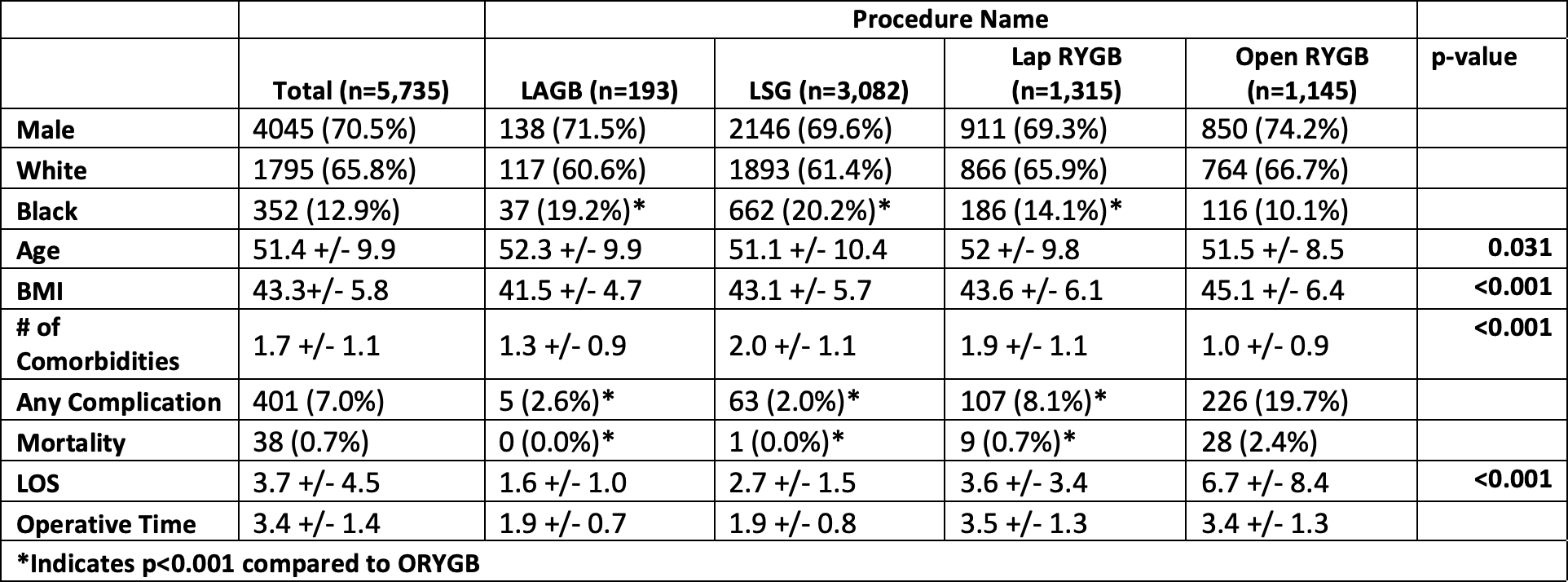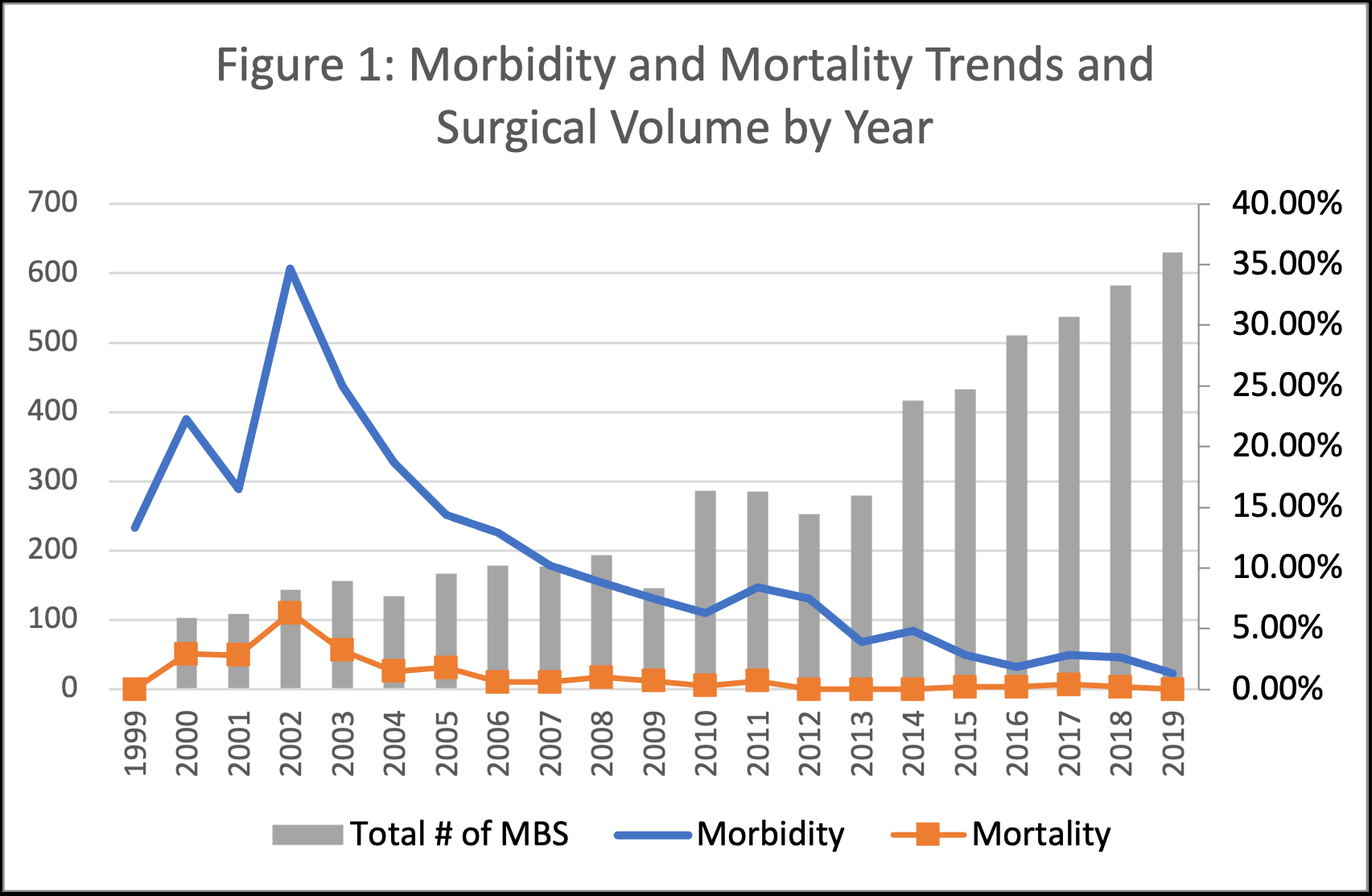METABOLIC AND BARIATRIC SURGERY (MBS) AT THE VETERANS HEALTH ADMINISTRATION (VA) SYSTEM FROM 1999 TO 2019
Lucas Keller-Biehl*1,2, Michael Amendola1,2, Michael Barker2, James W. Maher1,2, Guilherme M. Campos1, Jennifer Salluzzo1
1Surgery, Virginia Commonwealth University, Richmond, VA; 2VA Richmond Medical Center, Richmond, VA
Introduction: The VA population has higher rates of all classes of obesity than the general population and with an estimated 36 to 41% of individuals treated at the VA with a BMI greater than 30kg/m2. However, the utilization of MBS at the VA seems limited and only 22 VAs offer bariatric surgery across the US. Our aims were to describe the trends in numbers, type of surgery, and perioperative outcomes of MBS within the VA system from 1999 to 2019.
Methods: We assessed the VA Surgical Quality Improvement Program database of primary MBS from 1999-2019. Data collected included patient demographics, surgical approach [Open Gastric Bypass (ORYGB), Laparoscopic Band (LAGB), Laparoscopic Sleeve Gastrectomy (LSG), Laparoscopic Gastric Bypass (LRYGB)], comorbidities, and perioperative outcomes. Patients with BMI <35 and CPT codes inconsistent with MBS were excluded. Pearson's ?2 test and ANOVA testing were used to compare differences.
Results: A total of 5,735 patients underwent MBS during the study period. The average age was 51.4 years (range 20 to 77), average BMI was 43.3 (range 34.5 to 110), and 70.5% of patients were male (Table 1). 1,145 (20.0%) had ORYGB, 1,315 (22.9%) LRYGB, 3,082 (53.7%) LSG, and 193 (3.4%) LAGB. The number of yearly MBS has increased from 15 cases in 1999 to 630 cases in 2019 (Figure 1). The surgical approach has changed from ORYGB to laparoscopic techniques, of which LSG is currently the most common procedure. Overall morbidity and mortality have improved significantly (p<0.001, respectively) over the years (Figure 1).
Conclusion: Within the VA, the number of MBS has increased from 1999 to 2019; LSG is currently the most common procedure, and morbidity and mortality rates have improved over time. The availability of MBS to veterans, which is known to improve quality of life and decrease long-term health care costs, needs to be addressed. Given that the VA is the largest integrated health system in the US with resources from the Federal Government, they are uniquely positioned to accomplish this mission.

Back to 2022 Posters
